There’s been a thread running through some of my recent posts that’s maybe not simply a thread, maybe it’s an elephant worth naming. And patting. And seeing if we can teach it to sit and let us give it a good scratch behind the ears.
I don’t believe ‘identity’ is a coherent category for Christians to use; not in politics, or in theology.
I don’t think it’s a category you find in the Bible, and I think when we shoehorn Biblical categories into this ill-fitting modern boot, we end up with terrible pus-filled blisters, and ultimately, deformed feet.
I think we should stop. And here’s why.
I think the Bible has an utterly different concept of personhood — both in terms of who we were made to be in relationship with God, and with what personal choice and the things we might ‘identify’ as indicate about us as people. I think the word is freighted with too much baggage to be a useful word if ‘identity’ is being used either descriptively (ie drawing an analogy between its use in popular psyhcological/sociological/political thought), or prescriptively (ie seeing those psychological/social/political concepts mapping on cleanly to a Biblical anthropology such that the word is something real and fundamental to our theological schema).
When we talk about ‘identity in Christ’ we’re talking about an act of ‘self-definition’ in Jesus, an enshrining of my own personal decision making and my decision to ground my sense of self in Jesus; this might be experientially true, but I’m not sure, for Reformed types, that it is theologically coherent to speak in these terms, and I think it comes with a whole anthropology that, appears to be a fruit of the Reformation but is actually a fruit of Renaissance Humanism (which in turn, influenced the Reformation). I suspect we’re better off talking about personhood as something given and received — even given by false gods — than something self-defined, grasped, activated, realised and performed as an autonomous action.
This might be oddly pedantic for someone who keeps saying that words have a descriptive function, not just a prescriptive one, and maybe we can fight the good fight to reclaim the word “identity” as something given to us by God, or reflective of heavenly, spiritual realities here on earth, not just a thing I self-determine as I project and perform my autonomous self-understanding and desires into the world… but if we’re going to have that contest we need to know we’re having it, and what we’re up against — what’s ironic is the same people who reject using ‘gay’ as part of an identity statement for a Christian, because of the way it is understood by the average punter, is that they don’t apply the same standard to the word ‘identity’… There’s a whole other compelling argument, made at Mere Orthodoxy, that when we use ‘identity in Christ’ language we do that in a way that can eradicate a whole swathe of creaturely things that are good and God given as part of our personhood in the process, especially when that becomes a totalising weapon used to stop people making identity claims we don’t like (for eg ‘gay Christian’).
I know I’m unlikely to convince many people. But here are some of my thoughts.
The concept of identity is very closely linked to the concept of individuality. The need to define ‘who I am,’ let alone the need to have my answer to that question recognised and legitimised by society and the state (via laws or ‘identity politics’) is a relatively new concept. Previously you knew who you were because that reality was given to you by God, or the gods, or your nation’s god-ordained political system/structure.
The concept of the individual is both new, and humanist. That is to say, it emerged as society sought to decouple our understanding of the self from God and a cosmic order. When I say ‘new’ I mean in the scheme of human history, not relative to my lifetime. It’s new in that we had a really long time, including the periods in which the Old and New Testaments were composed, where people did not think of themselves as ‘individuals’ at all, but rather, as belonging to a series of systems — family, clan, tribe, nation, etc. In 1860, in a chapter ‘The Development of the Individual‘ in a book on Renaissance history, Jacob Burckhardt, a historian, traced the development of ‘the individual’ as a concept, to the start of the renaissance period in Italy. He said:
In the Middle Ages both sides of human consciousness — that which was turned within as that which was turned without — lay dreaming or half awake beneath a common veil. The veil was woven of faith, illusion, and childish prepossession, through which the world and history were seen clad in strange hues. Man was conscious of himself only as a member of a race, people, party, family, or corporation — only through some general category. In Italy this veil first melted into air; an objective treatment and consideration of the State and of all the things of this world became possible. The subjective side at the same time asserted itself with corresponding emphasis; man became a spiritual individual, and recognised himself as such.
This ‘veil’ was, in some ways, the idea of a divinely ordered social structure that you were born into, that meant your position in the world, in this system, was given as part of God’s providential design. Now. Maybe some liberation from those structures is good and necessary (and we’ve all benefited), but it’s possible there’s a baby and bathwater situation going on here, because it didn’t take long, once this veil was removed, for us to get quite comfortable not just with the idea that God didn’t have designs for how I lived in my private life, or what I spent my leisure time on, or where I worked, but with the idea that God didn’t have designs for me at all — or, indeed, that God was not in the picture. This sort of humanism is a necessary precursor for the deism that then developed (the idea that God is not actively, or providentially, involved in creation at all — but is distant, having made the universe and then left it to its own devices), and deism was necessary for atheism.
Burckhardt talks about how, at first, this individualism didn’t rock the political system too much; people were content to have private individual freedom, without engaging in conspiracy or revolution. He says “political impotence does not hinder the different tendencies and manifestations of private life from thriving in the fullest vigour and variety. Wealth and culture, so far as display and rivalry were not forbidden to them, a municipal freedom which did not cease to be considerable, and a Church which, unlike that of the Byzantine or of the Mohammedan world, was not identical with the State — all these conditions undoubtedly favoured the growth of individual thought, for which the necessary leisure was furnished by the cessation of party conflicts. The private man, indifferent to politics, and busied partly with serious pursuits, partly with the interests of a dilettante, seems to have been first fully formed in these despotisms of the fourteenth century.”
Now, Burckhardt is writing a sort of ‘history of ideas’ a few hundred years removed from the period he’s describing, writing from a world shaped by the individualism he describes here, and its development through the renaissance, the Reformation, and the enlightenment.
The Renaissance produced ‘humanism’ as a philosophical outlook, this was a product both of the development of the idea of a ‘self,’ and the beginning of a departure from the idea that all positions in society represented a divinely ordained hierarchy. Humanism was, in particular, a product of the empowerment of the lay person rather than the clergy, and so reflected ‘non-church’ or non theological concerns. There are many good things about this move, and yet, the same move involved pushing God to the margins — to the ‘sacred’ space, carving out a ‘secular’ where God was not operating. Humanism was concerned with ‘individuals’ rather than a cosmic ordering of reality, or a system that people were born into.
Humanism eventually produced two lawyers who would reform the church, Martin Luther, and John Calvin (three if you count Erasmus). There’s lots to love about what Luther and Calvin brought to the church — both as lawyers who recognised truths about the Gospel that maybe only a lawyer could recognise, but also as humanists; and the church today would benefit if more people dug deeply into their thinking. But neither Calvin or Luther were infallibly objective commentators, the Reformation has the fingerprints of both humanism and the work of lawyers all over it. Again, these are not bad things where these perspectives gave access to truths about God that had otherwise been missed, but, they do freight in ideas from the Renaissance, and from humanism, that might obscure certain truths if these ideas aren’t held in tension. Like all of us, they brought their personhood into the task of understanding God, and his word.
One additional change brought about by the Reformation, as an implication of the sort of politics required to ‘consciously decouple’ the Catholic Church from state power, was a further breaking down of the idea that all monarchs (and priests) were appointed by God in a reflection of the divine order. The Reformation was another nail in the coffin of the medieval (or more ancient) conception of the world — where kings (and church priests) ruled by divine right and were part of the ordering of society. Luther had a much broader vision of God’s providence in his ‘priesthood of all believers,’ perhaps best expressed in his Letter to the Nobility. Luther didn’t want to so much do away with God’s providential ordering of society — he wanted to broaden it, so that the work of all members of the body of Christ, the church, were appointed by God to play a role in the divine order, and, ideally, all people would find life and their purpose — their true humanity — in Jesus. Luther wanted the ‘spiritual’ and ‘temporal’ — or the ‘sacred’ and ‘secular’ to be much more overlapping than the church of his day did — he didn’t want the Spiritual removed from the picture all together. He says:
“It is pure invention that pope, bishops, priests and monks are to be called the “spiritual estate”; princes, lords, artisans, and farmers the “temporal estate.” That is indeed a fine bit of lying and hypocrisy. Yet no one should be frightened by it; and for this reason — viz., that all Christians are truly of the “spiritual estate,” and there is among them no difference at all but that of office, as Paul says in I Corinthians 12:12, We are all one body, yet every member has its own work, where by it serves every other, all because we have one baptism, one Gospel, one faith, and are all alike Christians; for baptism, Gospel and faith alone make us “spiritual” and a Christian people.”
And, describes his ‘priesthood of all believers’ — “Through baptism all of us are consecrated to the priesthood,” before saying “From all this it follows that there is really no difference between laymen and priests, princes and bishops, “spirituals” and “temporals,” as they call them, except that of office and work, but not of “estate”; for they are all of the same estate, — true priests, bishops and popes, — though they are not all engaged in the same work, just as all priests and monks have not the same work. This is the teaching of St. Paul in Romans 12:4 and I Corinthians 12:12, and of St. Peter in I Peter 2:9, as I have said above, viz., that we are all one body of Christ, the Head, all members one of another. Christ has not two different bodies, one “temporal ,” the other “spiritual.” He is one Head, and He has One body.”
Now, this might all feel a bit repetitive, but the point of the repetition here is that while the Reformation often gets blamed for kickstarting individualism, or discovering that it is a theological truth — like ‘identity’ — that comes when you do away with the old spiritual ordering of the universe, like the Renaissance did, or humanism attempts to, Luther actually had a different picture that wasn’t about individuality, but about being called to an office within a body — whether the spiritual body, or the community. While he elevates all individuals to ‘the priesthood’ (or lowers ‘priesthood’ to ‘the normal’), he doesn’t champion a sort of autonomous ‘define your self with no rules’ approach to life, or give us the building blocks to spiritualise personal identity, he invites us to be people-in-community (or in a system). Luther said all our work, within our vocations either in the ‘temporal’ or ‘spiritual’ realms are meant to be contributions to the health of our body — and he doesn’t just mean our own person… he said: “A cobbler, a smith, a farmer, each has the work and office of his trade, and yet they are all alike consecrated priests and bishops, and every one by means of his own work or office must benefit and serve every other, that in this way many kinds of work may be done for the bodily and spiritual welfare of the community, even as all the members of the body serve one another.”
So, to be clear, I think Luther is right — and that the proper re-ordering of the disconnect between the clerical rule of pre-Renaissance Europe and the everyday human was to not create a secular/sacred divide, where the clerics ruled the sacred space but kept their hands off the secular, but a ‘priesthood of all believers’ that held the sacred and secular together, and saw human dignity and value as things given by God along with the call for us to operate in community in ways that reflect heavenly realities. This isn’t to say the humanism of the Reformation did not, at the same time, impact its understanding of the Gospel (for good and for ill). In his landmark essay ‘The Apostle Paul and the Introspective Conscience of the West,’ (a seminal text in the movement now called ‘the new perspective’), Krister Stendahl suggests that the Reformers in general, and Luther in particular, brought their modern, western perspectives (humanist concerns even) to a pre-modern (pre-individual) text.
What’s interesting about Stendahl’s paper is that he suggests a key difference between modern readings of Paul, and perhaps Paul’s own thought world, is that with the rise of ‘the individual’ as a construct, our understanding of our selves, or our identity, or our personhood — what it means to be human — becomes not an act of knowing God and understanding our calling in the created order (and so knowing nature as well), but introspection. When we overlay our method of processing the world onto Paul’s, when that processing of the world is reasonably novel, we end up reading Paul through our own eyes. This is the heart of the ‘new perspective’ as a theological movement — and, you can take or leave its conclusions, but its starting point — acknowledging that modern people think (and so interpret) differently to ancient people seems like a sound starting point.
Stendahl offered an alternative reading of Paul’s writing that challenges, but doesn’t totally overturn, the supremacy of the individual in a particular Reformation schema. This is to say that there is an element of the Gospel that relates to an individual’s position before God, and, at the same time, a corporate or communal aspect of the Gospel that is thoroughly integrated with the individual person. Stendahl says:
“Thus even justification by faith, important though we have seen it to be, must be subsumed in the wider context of Paul’s mission to the Gentiles, part of God’s plan for his creation. Or perhaps we should say it this way. Paul’s thoughts about justification were triggered by the issues of divisions and identities in a pluralistic and torn world, not primarily by the inner tensions of individual souls and conscience. His searching eyes focused on the unity and the God-willed diversity of humankind, yes, of the whole creation.”
Stendahl’s contention here is that inasmuch as Paul is interested in ‘identity’ it’s about a communal identity found in Christ; rather than in being Jewish or Gentile. That we find who we are as people in communion (or union) with Jesus, rather than through introspection and the pursuit of an authentic expression of an individuated self.
In his conclusion, he says, that when we as readers are conscious of our tendency to impose our own views on the text, and tried to step back, we can observe the way western thought has developed — both theologically, climaxing with Luther, and in the secular frame climaxing with Freud, and then ask whether this trajectory is a valid and glorious one, building on seeds planted in the New Testament, or we can try to strip back those assumptions and understand what the text is saying (or try to do both). There’s almost an invitation in Stendahl to either read the Bible ‘westernotelically’ — where God’s intention was to develop the liberated (liberal) western human, through the intervention of Jesus in the world, or to read it ‘Christotelically,’ and then to keep looking back to the Jesus who arrived in the first century world, understanding the Scriptures as deeply connected to his life, and mission, and our life being caught up in his. Where you land on this question will impact how legitimate the concept of ‘individualism’ or even ‘identity’ is for Christians engaging in theology in the modern world.
Stendahl critiques the Protestant tendency, in individualising the function of the Gospel, to individualise the function of the Old Testament law, such that it exists to teach us how to live morally and so convict our conscience and show us our need for Jesus, but also give us instruction after we trust him (so that gentiles are under the law), and instead suggests we should read the law as a necessary part of the history that leads us to Jesus. Stendahl explores a debate on the translation of παιδαγωγὸς (paidogogos) in Galatians 3:24 in various modern english Bibles as ‘schoolmaster’ or ‘custodian’ and the theological significance of those choices in terms of what gets freighted in to our understanding of the function of the law, he suggests the law is best understood as occupying a holding position for the Jews until their true teacher and king, Jesus, arrived. , understanding that we, as Gentiles, are not under the law, but are united with our Jewish brothers and sisters in Jesus.
For what it’s worth, I suspect Luther might actually agree with lots of Stendahl’s observations, if not his conclusions. I think Luther gets misread pretty often through the prism of post-Luther Reformed thinking and emphasis, and that he actually grounds his understanding of the Gospel not in justification and its mechanisms, but in union with Christ (where individual justification and sanctification flow from that communal reality), and we see this teased out in, for example, his Letter to the Nobility quoted above. But you also see it in his desire to strip back the text of the Bible from the Latin translation of his day to the original languages; that same impulse might see us stripping back the thought worlds of our day, to the original thought worlds of the Bible.
Luther did, himself, attempt to hold communal realities and individuality (of sorts) together in a theological system, and, if anything, the communal reality (particularly in a social context where everybody was assumed to be part of the body of Christ) still defined the function, even the personhood, of the individual. Luther’s priesthood of all believers, and his application of this to the temporal and spiritual (or secular and sacred) roles people occupied was built from his understanding of our union with Christ, and so, with Christ’s body, the church.
But the reformation of the church, and as a result, the western world, didn’t stop there. And the Reformation itself provided some of the building blocks for ongoing reform outside the church; specifically the foundations of liberalism and the individualism we see at the heart of the modern west. Where Luther challenged the way a divine ordering of reality had been operating in the hands of a corrupt church, modern ‘secular’ humanism challenges the idea of a divine ordering of reality. What we get, instead, as secular humanism captures the imagination of the post-Renaissance/post-Reformation west, is not a ‘priesthood of all believers’ but the divine rule of the individual; the sovereignty of the self. This little snapshot definition of humanism from Oxford has a nice summary of the move involved: “The evolution of Italian humanism, grounded as it was on the study and imitation of the ancients, was marked from its beginnings with the concerns of lay society. Herein lay its claim to be a major progenitor of the modern world.”
When the divine ordering of human society gives way to the all encompassing secular space, built on the bedrock of humanism, the only authority that really matters is ‘the self,’ and any communal endeavours have to be built not on an understanding of, or appeal to, a divine order, or common good, even, but to common self-interest (or coalitions of over-lapping self-interests for the sake of holding power).
After Luther, but before Burckhardt, came John Locke. Locke is one of the founding fathers of liberalism; the political doctrine underpinning both the ‘left’ and the ‘right’ in modern political conversations in the western world. If the Renaissance created the individual, Locke was important in enshrining the individual as the supreme authority; completing the shift of locating human dignity in the ‘image of God’ imprinted on us, to the idea that each individual is Lord of his or her own domain. Locke spent a fair bit of his time arguing from the Bible to justify his understanding of the relationship between the person and the state, especially in his two treaties (treatises?) of government. In the Second Treaties of Government, Locke argues for certain principles of individual liberty that work to establish the sovereignty of the individual. Locke located legitimate exercises of political power, basically, in the protection of property — starting with the property an individual person has in their own self, and extending to rights for an individual to claim created things where their labour had fused with the created thing to give it a sort of value. Locke says:
“Every individual man has a property in his own person; this is something that nobody else has any right to. The labour of his body and the work of his hands, we may say, are strictly his. So when he takes something from the state that nature has provided and left it in, he mixes his labour with it, thus joining to it something that is his own; and in that way he makes it his property.”
This is an expression of a move from either an understanding of a commons, where natural resources belong to all (particularly as given by God), or an understanding that all ‘property’ is owned by monarchs or rulers (in feudal systems). For Locke, legitimate governments existed to guarantee these property rights (both to the self, and one’s work), and to afford individuals the liberty to pursue life, liberty, health, and property. Again, I’m glad Locke existed and brought a bunch of changes, but in bringing these changes life as individual people became further detached from the providence of God, and the ordering of creation such that our experience of its goodness was seen to flow from his hands. Instead, it flowed from our own individual efforts.
So. What does this potted history have to do with identity? And why it’s a nebulous, and perhaps unhelpful concept to build Christian anthropological (and political and ethical) thinking on?
Well. Identity as a concept is a product of these movements — of renaissance humanism, secularisation, and the development of the absolute sovereignty of the self; sometimes justified with some implications of the Reformation, but often only paying lip service to a Christian heritage and seeking to cut loose from the roots and branches that produced the fruit. In a journal article from 1983, ‘Identifying Identity: A Semantic History’ (that became a book chapter), Philip Gleason traced the development of the concept of identity by tracking the use of the word identity. He found that this word that gets given so much weight in modern Christian theology has a very short history; and that alone should give us pause about how keen we are to use ‘identity’ and how people ‘identify themselves’ (ie with what terms or qualifiers) as a yardstick of orthodoxy. He says the emergence of identity as a concept in politics (or sociology) and psychology is very new.
The historically minded inquirer who gains familiarity with the literature, however, soon makes an arresting discovery—identity is a new term, as well as being an elusive and ubiquitous one. It came into use as a popular social science term only in the 1950s. The contrast between its handling in two standard reference works dramatizes its novelty. The International Encyclopedia of the Social Sciences, published in 1968, carries a substantial article on “Identity, Psychosocial,” and another on “Identification, Political.” The original Encyclopaedia of the Social Sciences, published in the early 1930s, carries no entry at all for identity, and the entry headed “Identification” deals with fingerprinting and other techniques of criminal investigation.
This fits with the Google ngram data I posted in a previous examination of how unhelpful the word ‘identity’ is when it comes to a Christian approach to sexuality.
When it comes to the links between the development of the individual, unmoored from a divine order — or a ‘given’ self — Gleason traces its usage back to Locke, and Hume (two key figures in the development not just of humanism, but secular humanism).
“The OED’s first two usage citations illustrating psychological “personal identity” are from Locke’s Essay concerning Human Understanding (1690) and David Hume’s Treatise on Human Nature (1739). This tends to corroborate Robert Langbaum’s assertion that identity did not take on psychological connotations until the empiricist philosophers called into question what he calls “the unity of the self.” The unity of the self was not a problem so long as the traditional Christian conception of the soul held sway, but it became a problem when Locke declared that a man’s “Identity … consists in nothing but a participation of the same continued Life, by constantly fleeting Particles of Matter, in succession vitally united to the same organized Body.” Langbaum argues that Locke and Hume “use the word identity to cast doubt on the unity of the self,” and he has written a book to show how writers from William Wordsworth to D. H. Lawrence reacted to this challenge to the integrity of “the self.””
Gleason tracks the emergence of the concept of identity as we might know it from the mid 50s, where he says a book titled Protestant-Jew-Catholic made the case that in a fragmenting culture where personhood had become disconnected from an established order, and was left in the hands of the self, religion was still the most satisfying way for “locating oneself in society” and answering the aching question “who am I?” He quotes a publication from 1963, to demonstrate how ‘Identity’ had moved from the fringes to the centre of moral discourse, and the defining question of a particular age, which asks “who, thirty years ago, would have thought that the problem of identity would become one of the most crucial issues for the searching individual in our society?”
Gleason then traces the development of the concept of identity (especially identity formation) in psychology, specifically through the work of Erik Erikson (which is about as cool a ‘given’ name as possible for a bloke who then talks about the quest for the development of the self). He says that in the psychological realm, Erikson saw identity formation as a process that “involves an interaction between the interior development of the individual personality, understood in terms derived from the Freudian id-ego-superego model, and the growth of a sense of selfhood that arises from participating in society, internalizing its cultural norms, acquiring different statuses, and playing different roles.”
Charting its actual use in publications, Gleason identifies a contest within the modern understanding of the word ‘identity’ between its psychological and sociological uses, and, indeed, the present use of the word still seems contested in those spheres. This is true even when Christians try to appropriate it in order to ‘contextualise the Gospel’ and speak truths about God’s role in defining ‘the self’ into the modern conversation that often doesn’t realise what is lost through his absence… we use ‘identity’ in either psychological, or sociological ways, or interchangeably without recognising the difference. Gleason says the psychological and sociological understandings of the concept of identity can’t be easily reconciled:
“The two approaches differ most significantly on whether identity is to be understood as something internal that persists through change or as something ascribed from without that changes according to circumstance. For Erikson, the elements of interiority and continuity are indispensable. Working within the Freudian tradition, he affirms that identity is somehow “located” in the deep psychic structure of the individual. Identity is shaped and modified by interaction between the individual and the surrounding social milieu, but, change and crisis notwithstanding, it is at bottom an “accrued confidence” in the “inner sameness and continuity” of one’s own being.
The sociologists, on the other hand, tend to view identity as an artifact of interaction between the individual and society—it is essentially a matter of being designated by a certain name, accepting that designation, internalizing the role requirements accompanying it, and behaving according to those prescriptions.”
Gleason suggests that the incredible spike in popularity of the term identity was that its dual use gave it currency in emerging questions in the 1950s, especially post World War 2. He describes how talking about ‘identity’ replaced talking about ‘character’ and how part of the traction it gained was a sort of reconnection between an individual’s quest for self-hood, and the way social identities (including national identities) were being studied, and/or redefined at the time.
The quest for an individual ‘identity’ alongside a social identity emerges as a significant concept in the west only in the period between 1955 and 1963, but piggybacks off the Renaissance, the Reformation, the work of John Locke, and others, including Freud and Erikson. While it has a heritage that stretches back to the 1300s, it this search is a product of what Charles Taylor calls ‘the secular age’ and specifically the plethora of individual identity-constituting choices that flows out of the rejection of the idea of a God, or gods, providing order and meaning, and a place for each person in the cosmos. Taylor explores this idea in depth in his work The Sources of the Self. Taylor notes that the roles we play in forming our identity after the ‘nova effect’ that comes from the social order being disconnected from a divine order often leaves us with a plethora of choice, and performing our identity not just through rituals (typically non-religious rituals of belonging), but also through choice (and particularly consumer choice).
Gleason’s paper is worth ploughing through, both for its substance, and its conclusion — one that urges caution in employing the word “identity” mindful of the contest or confusion caught up in its use; a warning that we Christians might heed when co-opting the word to use for our theological purposes (or even to try to show how the Gospel of Jesus provides answers to both the psychic and sociological quests for an identity). He says:
“For these reasons, responsible use of the term demands a lively sensitivity to the intrinsic complexities of the subject matter with which it deals and careful attention to the need for precision and consistency in its application. But of course its enormous popularisation has had just the opposite effect: as identity became more and more of a cliché, its meaning grew progressively more diffuse, thereby encouraging increasingly loose and irresponsible usage. The depressing result is that a good deal of what passes for discussion of identity is little more than portentous incoherence, and the historian need not be intimidated into regarding it as more than that.”
When Christians talk about our ‘identity’ in Christ, it’s hard to distinguish what we’re saying at that point from the idea that Christianity is just one ‘choice’ we make, that impacts the role we play and the community we belong to, while we ‘internalise its cultural norms’. The Christian story of who we are as selves, especially selves in Jesus, is something different to this. A Christian understanding of personhood makes space for a whole range of ‘identities’ as descriptions of roles we play in different relationships so that I can be, for example, husband, father, pastor, friend, sport fan, coffee connoisseur, or dog owner as ‘identities’ — I could even be straight, or Australian, or white (or if it were true, gay) and have that as part of my experience or story, and a description of communities I am connected to, without that threatening my understanding of my ‘self’ being rooted in God’s life and providence, and found and redeemed in the body of Jesus, through union with him by the Spirit, and so also find my identity in the body of Jesus, the church, and in the roles God has appointed, or provided, or calls me to in this world as a priest in the priesthood of all believers, in service of the body. I don’t need to claim a totalising ‘identity in Jesus,’ as an expression of my individualism.
That is to say, Christianity has something to say for those who are searching for a sense of self, who want to answer the question ‘who am I’, but the answers Christianity gives might, in their most satisfactory form, not rest in weird ontologically weighted labels around sexuality, race, or even religious belief, and the recognition of one’s individuality, desires, or ‘id,’ but instead might look to a more ancient schema, both in a divine ordering of reality that works its way through to the givenness of our personhood (in an integrated sense of body and soul), and the calling, or telos, we find in Jesus as we are united to him, and called into the priesthood of all believers, such that we can find meaning and purpose in both the spiritual and temporal realms. To push towards that sort of vision of the person might involve pushing back both against individualism (as a product of Renaissance/secular humanism), and identity (as a child of the uncertainty produced by that move), and to something more grounded in the life and providence of God.

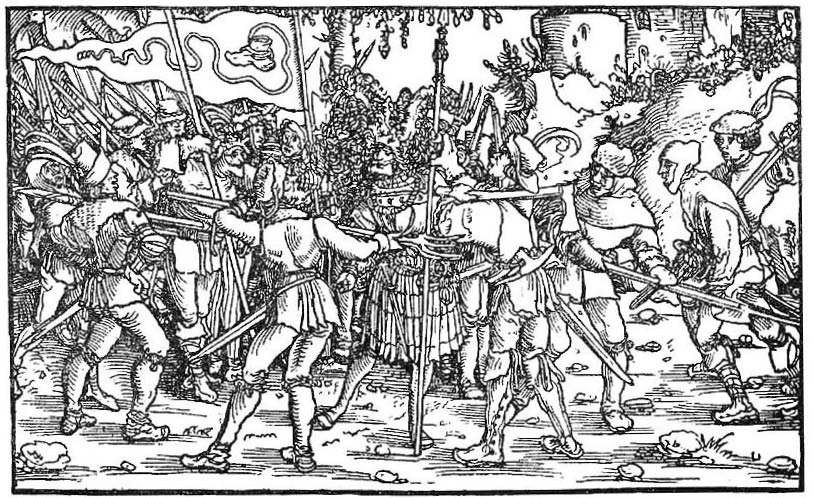



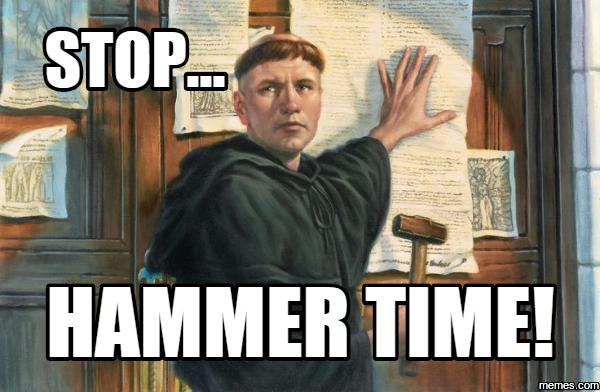


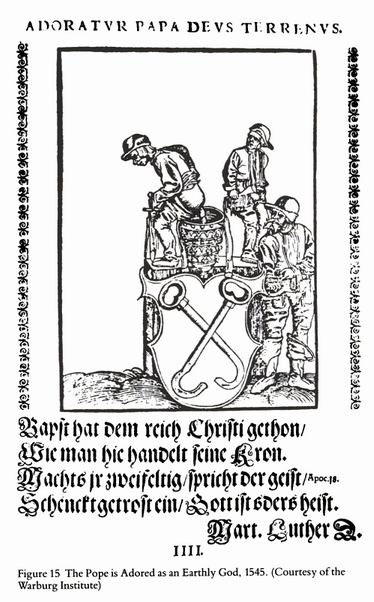
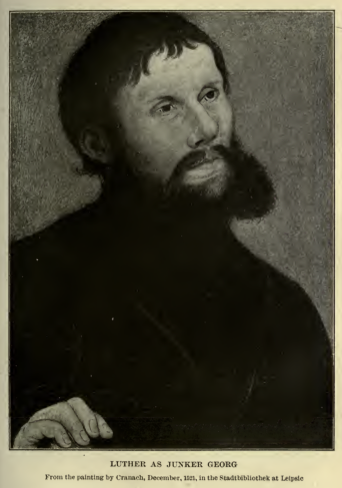
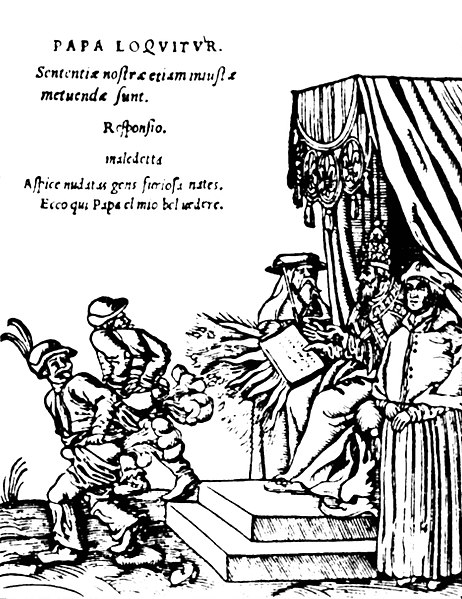

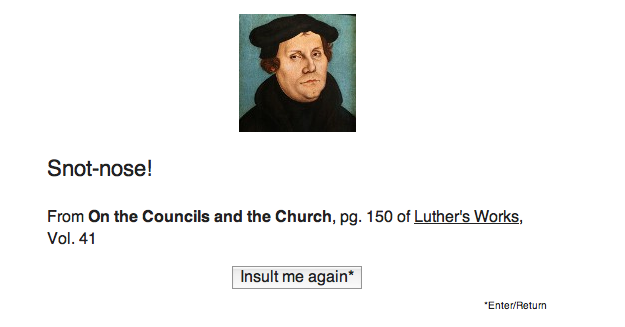
Why generous pluralism is a better ideal than idealistic purism and provides a better future for our broad church (or why I resigned from GIST)
This week I resigned from a committee I’d been on since 2011, I was at the time of resigning, the longest serving current member. I resigned because I did not and could not agree with the statement the committee issued on the same sex marriage postal survey, and I wanted to freely and in good faith publicly say why I think it is wrong, and to stand by my previously published stance on the plebiscite.
In short, I did not think the committee’s paper fulfilled either aspects of its charter — it is not ‘Gospel-hearted apologetics’ in that there is nothing in it that engages particularly well with the world beyond the church in such a way that a case for marriage as Christians understand it might convince our neighbours of the goodness of marriage, or the goodness of Jesus who fulfils marriage in a particular way; nor do I believe it effectively equipped believers to live faithfully for Jesus in a secular society; instead, it equipped believers who were already going to vote a particular way to keep voting that way and to have some Gospel-centred reasoning to do so. I’m not convinced the way it encourages people to vote or speak about that vote, or understand the situation grapples well with our secular context; as someone not committed to a no vote already, I found the paper unpersuasive even after a significant review process.
But there was also a deeper reason for my resignation (resigning over just one paper would not be a sensible course of action) — this paper reflects a particular approach to political engagement in a fractured and complicated world that I do not support, and there was no evidence the committee would adopt an alternative strategy. I resigned because the committee failed to practice the generous pluralism that I believe the church should be practicing inside and outside our communities (on issues that aren’t matters of doctrine — there’s a difference between polytheism and pluralism). I had asked for our committee to put forward the views of each member of the committee rather than the majority, because the committee’s remit is to ‘equip believers in our churches to engage in Gospel-hearted apologetics’ and ‘to live faithfully for Jesus in a secular society’ — and I believe part of that is equipping believers to operate as generously as possible with people we disagree with in these complicated times.
The statement issued by the committee is no Nashville Statement; it is an attempt to be generous to those we disagree with, without offering a solution to a disagreement that accommodates all parties (or even as many parties as imaginable); it is also an idealistic document, and so as it seeks to push for an ideal outcome it represents a failure to listen and engage well with other people who hold other views — be they in our churches, or in the community at large. It is this failure to listen that led me to believe my energy would be better spent elsewhere, but also that leads me to so strongly disagree with the paper that I am publishing this piece.
This is not, I believe, the way forward for the church in a complicated and contested secular world; it will damage our witness and it represents the same spirit to push towards an ideal ‘black and white’ solution in a world that is increasingly complicated. I’m proud of this same committee’s nuanced work on sexuality and gender elsewhere, and don’t believe this paper reflects the same careful listening engagement with the world beyond the church and the desires of the people we are engaging with (and how those desires might be more fulfilled in knowing the love of Jesus). By not understanding these desires (not listening) our speech will not be heard but dismissed. This paper is meant to serve an internal purpose for members of our churches (so to persuade people to vote no), but it is also published externally on our website without any clarification that it is not to be read as an example of Gospel centered apologetics, so one must conclude if one reads it online, that this is a paper that serves both purposes of the committee.
I’m not the only voice speaking out in favour of pluralism, nor am I claiming to be its smartest or best spokesperson. John Inazu’s book Confident Pluralism and his interview in Cardus’ Comment magazine gave me a language to describe what I believe is not just the best but the only real way forward in what Charles Taylor calls our ‘secular age’ — where the public square is a contested space accommodating many religious and non religious views. If we want to resist the harder form of secularism which seeks to exclude all religious views from the public square, it seems to me that we either need a monotheistic theocracy (but whose?) or a pluralistic democracy that accommodates as many views as possible or acceptable; and this requires a certain amount of imagination and a sacrifice of idealism. The thing is, for many of us who’ve been brought up in an environment that defaults to the hard secular where the sexual revolution is assumed (ie anyone under about 38, or those who are a bit older but did degrees in the social sciences), we’ve already, generally, had to contest for our beliefs and adopt something like a pluralism. There are ways to prevent pluralism — like home schooling or insularly focused Christian education, but if people have grown up in a ‘public’ not stewarded by a particular stream of Christianity that deliberately excludes listening to the world, or if they are not particularly combative and idealistic types who have played the culture wars game from early in their childhood, then they are likely to have adopted something that looks pluralistic.
Here’s a quote from John Inazu’s interview with James K.A Smith, from Comment:
But it’s also not just Inazu who has spoken of pluralism; it’s also John Stackhouse in a recent piece for the ABC Religion and Ethics portal. In a piece titled Christians and Politics: Getting Beyond ‘All’ or ‘Nothing’, Stackhouse says:
Now, it’s interesting to me, particularly in the process that led to my resignation from the committee to consider how the dynamic between these three camps plays out within Christian community (it’s also interesting to consider how these three categories mesh with three I suggested using the metaphor of hands — clean hands, dirty hands, and busy hands in a post a while back); I’ll go out on a limb here and say idealism is always partisan, and so we need to be extremely careful when speaking as an institutional church if we choose to pursue idealism in the secular political sphere (especially on issues of conscience where there are arguably many possible faithful ways to respond to a situation with an imagination that rejects the status quo served up to us by others); while pluralism is the way to maintain clean hands as an institution in that model.
The idealistic stream of Christianity will see the pluralist as not just compromising politically but theologically, because while the pluralist will be operating with perhaps something like a retrieval ethic, the idealist will operate with something more like a creational ethic or a deontological ethic or a divine command ethic and so see their path as clearly the right way, and thus other paths as wrong. The pragmatist will have sympathies in both directions, and the pluralist will seek to accommodate all these views so long as they still recognise the truth the idealists want to uphold (if they don’t they’ve become ‘polytheists’). I predict the church, generally (and specifically in our denominational context) will face a certain amount of problems if not be damaged beyond repair if we put idealists in charge and they tolerate pragmatists but exclude pluralists — especially if those who have grown up needing to be pluralists to hold their faith. A push to idealism rather than confident, or generous, pluralism, will alienate the younger members of our church who are typically not yet in leadership (and this dynamic has played out in the Nashville Statement), and it will ultimately lead to something like the Benedict Option, a withdrawal from the pluralistic public square into our own parallel institutions and private ‘public’.
It’s interesting to me that GIST fought so hard against withdrawing from the Marriage Act, because, in part, the government recognises marriage contracts entered into by the parties getting married and conducted by a recognised celebrant according to our marriage rites — so there is already a difference between how we view marriage and how the state does — pluralism — but has now reverted to arguing that the government doesn’t just recognise marriage according to a broader definition than we hold but promotes and affirms particular types according to a particular definition. I know that was our argument because it was the one I spoke to in the discussion at our General Assembly.
Here’s my last smarter person that me making the case for pluralism in these times, New York Times columnist David Brooks in his review of the Benedict Option. He opens by describing two types of Christians not three — and Stackhouse’s pragmatist and pluralist categories fall into the ‘ironist’ category.
If the purists run the show we’re going to end up with a very pure church that ultimately excludes most impure people ever feeling loved enough, or understood enough, to bother listening to what we have to say. Purists are necessary though to keep us from polytheism or losing the ideals. Here’s more from Brooks:
Brooks uses ‘Orthodox’ to qualify pluralism, Inazu ‘Confident’; I’ve settled on ‘generous’ (see my review of the Benedict Option for why).
If our denomination puts the idealists/purists in power without an ethos of including the pluralists (a functional pluralism) they will always by definition exclude the pluralists; whereas if we adopt a pluralistic approach to the public square (and to how we give voice to those who disagree with us within the camp of orthodoxy) then we will necessarily also give space to the pluralists. The choice we are faced with is a choice between a broad church and a narrow one. What’s interesting is that pluralism actually becomes an ideal in itself; one of the reasons I resigned is that I am fundamentally an idealist about pluralism, once it became clear this would not be our posture or strategy, I could no longer participate (because I was excluded, but also because I am an idealist and saw the purist-idealism as an uncompromising error).
So this is a relatively long preamble to establish why I think the position adopted by GIST (idealism/purism) and how it was resolved within the committee (idealism/purism/no pluralism) is deeply problematic and a strategic misfire in our bid to engage the world with ‘gospel hearted apologetics’.
Generous pluralism and ‘living faithfully for Jesus in a secular society’ and ‘engaging in gospel-hearted apologetics’ in a polytheistic world
GIST’s philosophy of ministry acknowledges that we live in a ‘secular society’ but maintain some sort of difference from that society by ‘living faithfully for Jesus’. The idealism that Stackhouse speaks of, or purism that Brooks speaks of, will fail if society is truly secular.
Idealism will fail us because at the heart of idealism is not simply a commitment to monotheism as the option we faithfully choose amongst many contested options in the broader public, but as the option the broader public should also choose as the temporal best (following Stackhouse’s definitions). So we get, in the GIST statement, sentences like, which holds out a sort of ideal around marriage (rather than a ‘faithful life’ within a secular society):
It seems unlikely to me that this ideal of society returning wholeheartedly to God’s design for marriage (essentially a Christian society) is possible this side of the return of Jesus (which is why I’m a pluralist), and I am confused about this being an ideal that we are to pursue as Christians.
Here’s why. I think this sort of wholehearted pursuit of God’s design for marriage was an ideal in Israel (but the sense that the ideal is not actually possible is found in God’s accommodation of divorce in the law of Moses, though he hates it and it falls short of the lifelong one flesh union). I think this ultimately is a form of the pursuit of monotheism for all in society; a noble ideal formed by an eschatology where every knee will one day bow to Jesus (Philippians 2). Israel was to pursue a sort of societal monotheism — this is why they were commanded to destroy all idols and idolatrous alters — utterly — when coming into the land (Deuteronomy 4-7) and to keep themselves from idols. There is no place for polytheism — or idolatry — within the people of God (and yet the divorce laws recognise there is a place for ‘non-ideal’ broken relationships and dealing with sin to retrieve certain good outcomes). Israel was to be monotheistic and to guard the boundaries of monotheism within its civic laws. We aren’t in Israel any more — but the church is the kingdom of God, and we as worshippers of Jesus are called to monotheism in how we approach life, this is why I believe it’s important that the church upholds God’s good design for marriage in a contested public square as part of our faithful witness to God’s goodness.
Now, while an Israelite was to destroy idols when coming into the land, and Christians are to ‘keep ourselves from idols’, outside of Israel our monotheism as Christians manifests itself in the Great Commission — the pursuit of worshippers of God — disciples — through worshipping God. When Paul hits the polytheistic city of Athens as a monotheist he adopts a pluralist strategy; one based on listening to the views of the people in Athens, on understanding their idolatrous impulses, and of confidently redirecting those impulses to the true and living God. His confidence is that when the Gospel is presented as a monotheistic truth in a pluralistic culture God will work to draw people back to his design for life.
Societal shifts towards God’s design have happened historically (think Constantine and Rome), and they do happen through Christians living and proclaiming the Gospel, but I’m not entirely sure that a Christian society should be our aim rather than a society of Christians (and the difference is how people who aren’t Christians are accommodated in the laws and institutions of each — ie whether the culture is pluralistic or monotheistic). Ancient cultures were also profoundly different to our individualistic, ‘democratised’ age in that the way to convert a culture was either to conquer it (think Babylon and Israel — or the spread of Babylonian religion to the hearts of most of those they captured (but not all Israel), or Rome and the imperial cult), or to convert the king. Kings functioned as high priests of the civic religion and the very image of God, and so to convert a king was to turn the hearts of the people to a different God (think Jonah in Nineveh, or Nebuchadnezzar’s response and edicts after witnessing God’s work in Daniel, and to some extent, Constantine in Rome). It is pretty unlikely that a society wide shift like this will happen when there isn’t a close connection to the ‘civil law’ and the religion of a nation.
I would argue this approach to voting is only straightforward if you adopt a purist-idealist position and reject pluralism as a valid good. That it isn’t actually straightforward that the best thing for our society is that non-Christians be conformed to our vision of human flourishing, and so our definition of marriage, without the telos — or purpose — of human flourishing and marriage as part of that being established first.
I’d also say this is an odd interpretation of what we are being asked. The question is not ‘what would be best for society’ — to approach it that way automatically leads to adopting an ‘idealist’ position; it begs the question. What we are being asked, literally, is “should the law be changed to allow same-sex couples to marry?” In a secular society that’s an entirely more complicated question about what communities and views a secular government should recognise in its framework. The government’s responsibility is to provide the maximum amount of compromise or breadth for its citizens that can be held by consensus. It’s a tough gig. The government’s definition of marriage, including no-fault divorce, is already different from the Christian view. I marry people according to the rites of the Presbyterian Church which includes and articulates a vision of marriage connected to the telos of marriage — the relationship between Jesus and the church; the government’s definition of marriage is broader than mine, but includes mine.
This is the point at which I disagree significantly with the paper (I also disagree with the way it treats recognition as affirmation, fails to listen to, understand, and respond to the ‘human rights’ argument for same sex marriage by simply blithely dismissing it, and how it sees secular laws as establishing ideals rather than minimums (the state can and does pursue ideals through incentives and campaigns, but there are no incentives being offered to gay couples to marry that they do not already receive). The law is a blunt instrument that recognises things held as common assumptions of the minimum standards of life together, like ‘robbery is wrong’ and governments can incentivise not-robbing with welfare payments, and prevent the evil of robbery by incentivising or subsidising local governments or businesses introducing better lighting and security. Ethics aren’t formed so much by law but by the development of ideals and virtues (and arguably this happens through narratives not law, which is why so much of the Old Testament law is actually narrative even in the little explanations of different rules).
Generous Pluralism, the GIST Paper, and the Priesthood of all believers
This GIST paper was adopted after a lengthy review process, and through much discussion including three face to face meetings and deliberation by flying minute. Throughout the course of the discussion (and before it) it became clear that there were different views about what ‘faithfully living for Jesus in a secular society’ looks like; and so what equipping believers to do that looks like. I suggested we put forward the best case for different responses (an alternative to the majority view, and for it to be clear who held it and who did not, on the committee. In the discussions around the paper the majority of the committee held that we did not want to “give credence” to views other than the no vote being what equips believers to live faithfully for Jesus; even while acknowledging that my position was legitimately within our doctrinal and polity frameworks. This was ultimately why I resigned.
I don’t believe this decision to exclude a possible way to live faithfully for Jesus (and what I think is the best way) fulfils the committee’s charter if there are actually legitimate faithful ways to abstain or vote yes.
I also this fails a fundamentally Reformed principle in how we think of believers, and this principle is part of why I think a confident or generous pluralism within the church, and within the boundaries of orthodoxy, is the best way to equip believers. A confident pluralism isn’t built on the idea that all ideas are equally valid, but rather that we can be confident that the truth will persuade those who are persuaded by truth. That we can be confident, in disagreement, that a priesthood of all believers do not need a priestly or papal authority to interpret Scripture and the times for them. Believing that such a committee writes to equip such a priesthood of all believers (those our charter claims we serve), and that they should apply their wisdom, submit to scripture, and participate in the world according to conscience is the best way to equip believers to live faithfully.
A position of generous pluralism applied to a secular society outside the church probably leads to abstaining, and possibly to voting yes, depending on your ethic (how much a retrieval ethic plays into your thinking and how much you think the law affirms or normalises rather than recognising and retrieving good things from relationships that already exist (where children already exist).
Because a confident, or generous, pluralism relies on the priesthood of all believers and trusts that Christians should come to their own position assessing truth claims in response to Scripture I’m relatively comfortable with space being made for people to hear views other than mine. An example of this is that I host the GIST website, free of charge, on my private server at my cost. People are reading their views at my expense, and I will keep doing this as an act of hospitality though I believe their views are wrong. I also host and only lightly moderate comments and critical responses to things I write. This is a commitment I have to listening, to dialogue, to hospitality, to accommodation of others, to the priesthood of all believers (and a confidence that the truth will persuade those who it persuades), and to pluralism — and the lack of this commitment from others on the committee is in favour of purism-idealism, is fundamentally, why I resigned from the committee.
While the GIST paper tries to hold the created order (or ‘marriage as a creation ordinance)’ in tension with the resurrection; following the Oliver O’Donovan ‘resurrection and moral order’ model (and this was part of our discussions as a committee); the problem with creational ethics (or arguments from God’s design/natural order) that establish a universal good for all people, even non-Christians, is that they do not, in my opinion, sufficiently recognise the supremacy of Jesus or how Jesus fulfils the law and the prophets (because ‘moral law’ is still law we find in the written law of Moses that Jesus claims is written about him). This is a point at which I diverge slightly from the capital R reformed tradition, but where I think I am probably prepared to argue I’m standing in the traditions of the Reformers (sola scriptura and the priesthood of all believers).
Turning to the Reformers for a model of a political theology from our secular context is interesting; the governments operating around the Reformation (for example the German nobility, or Calvin’s Geneva) were not secular but sectarian; and, for example, Luther wrote to the German nobility to call them to act as priests as part of the priesthood of all believers, rather than be led by the pope (a vital thing to convince them of if he was going to make space for the reformation). It’s fair to say that Calvin and Luther weren’t pluralists, they played the sectarian game at the expense of Catholicism or other forms of later Protestantism (see Luther’s Against The Peasants, and of course, his awful treatise on the Jews). When someone claims their political theology is consistent with the Reformed tradition and seeks to apply it to a secular democracy, I get a little concerned.
“It is pure invention that pope, bishops, priests and monks are to be called the “spiritual estate”; princes, lords, artisans, and farmers the “temporal estate.” That is indeed a fine bit of lying and hypocrisy. Yet no one should be frightened by it; and for this reason — viz., that all Christians are truly of the “spiritual estate,” and there is among them no difference at all but that of office, as Paul says in I Corinthians 12:12, We are all one body, yet every member has its own work, where by it serves every other, all because we have one baptism, one Gospel, one faith, and are all alike Christians; for baptism, Gospel and faith alone make us “spiritual” and a Christian people…
Through baptism all of us are consecrated to the priesthood, as St. Peter says in I Peter 2:9, “Ye are a royal priesthood, a priestly kingdom,” and the book of Revelation says, Rev. 5:10 “Thou hast made us by Thy blood to be priests and kings.”
This is an interesting paper from Luther in that it doesn’t provide any sort of model for interacting with a government that is secular or not as faithful as any other members of the priesthood of all believers — instead what his political theology in his context is about is a government he treats as Christian being coerced by a church he holds to be the anti-Christ.
The Reformation was built on an epistemic humility that comes from the challenging of human authority and tradition. Where the GIST committee, in its deliberation, appealed to the Reformed category of a ‘Creation Ordinance’, I’d want to appeal to the Reformed approach to scriptures that sees everything fulfilled in Jesus — even the creation ordinances like work, Sabbath, and marriage. It’s reasonably easy to establish that Jesus is our rest and Lord of the Sabbath, that his resurrection restores our ability to work in a way that is no longer frustrated (1 Cor 15:58, Ephesians 2) — that there’s a telos or purpose to these creation ordinances that is best fulfilled in Christ, so that they can’t universally be understood by idolatrous humans without Jesus, and yet our arguments about protecting marriage or upholding marriage is that we are upholding God’s good design for all people. GIST’s paper is infinitely better than anything the ACL or the Coalition for Marriage is putting out that only argues from creation, in that it includes the infinite — by incorporating the resurrection; but the idea of a creation ordinance that should push us away from accommodating others via a public, generous, pluralism is an idealism that I would argue fails to accommodate the relationship between creation and its redeemer, and the telos of marriage (which doesn’t exist in the new creation except as the relationship between us and Jesus) (Matt 22, Rev 21).
A Confession
I’d served this committee for seven years. In the first two years I was in a minority (with another member) with a majority holding to a different sort of idealism; an idealism not built on the Gospel, but on God’s law or the ‘whole counsel of God’ (with no sense of how God’s whole counsel is fulfilled in Jesus). We orchestrated a changing of the guard on this committee that was not generous or pluralistic; we excluded a voice from the committee that was a legitimate representation of members of the Presbyterian Church of Queensland.
We pursued a platform narrower than the breadth of the church and so alienated a percentage of our members; I’ve come to regret this, while being proud of our record (and despite the committee being returned unopposed year on year since). I don’t think excluding voices is the best way to fulfil our charter, but rather a poly-phonic approach where a range of faithful options are given to the faithful — our priesthood — in order to be weighed up. This will be a challenge within the assembly of Queensland where there is a large amount of accord, but a much larger challenge within the Presbyterian Church of Queensland, which is broader (and more fractured).
Conclusion
At present in the Presbyterian denomination our committees are operating like priests or bishops; sending missives to our churches that carry a sort of authority they should not be granted in our polity; I understand the efficiencies created by governance and operations via committee, but if Luther’s priesthood of all believers is truly a fundamental principle of Reformed operation in the world we should be more comfortable and confident that people being transformed by the Spirit and facing the complexity of life in our secular world will act according to conscience and in submission to God’s word, but might operate faithfully as Christians anywhere between idealism, pragmatism and pluralism, as purists or ironists; and if we put the purist-idealists in charge (or our committees function from that framework) we might significantly narrow the church and limit our voice and imagination; cutting off opportunities for Gospel-hearted apologetics from those who might walk through our idol-saturated streets and engage differently with our idol worshipping neighbours.
September 14, 2017